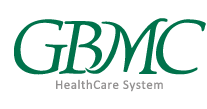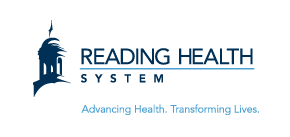Phase II Randomized Trial Comparing GA101 and Rituximab in Untreated Low Tumor Burden Indolent Non-Hodgkin's Lymphoma
| Status: | Completed |
|---|---|
| Conditions: | Lymphoma, Lymphoma |
| Therapuetic Areas: | Oncology |
| Healthy: | No |
| Age Range: | 18 - Any |
| Updated: | 8/5/2016 |
| Start Date: | December 2013 |
| End Date: | August 2016 |
Phase II Randomized Trial Comparing GA101 (Obinutuzumab) and Rituximab in Patients With Previously Untreated Low Tumor Burden Indolent Non-Hodgkin's Lymphoma
Patients with previously untreated low tumor burden indolent Non-Hodgkin's Lymphoma (NHL)
will receive either rituximab or GA101 weekly for 4 weeks followed by re-staging to
determine response.
Rituximab, an anti-CD20 chimeric antibody, was approved by the United States Food and Drug
Administration in 1998 for the treatment of patients with relapsed low-grade B-cell
lymphomas. Clinically, four weekly doses of rituximab have proven to be well tolerated and
effective in previously untreated as well as relapsed patients with low-grade lymphoma.
GA101 is an anti-CD20 humanized and glyco-engineered monoclonal antibody. GA101 has been
shown to have increased antibody-dependent cellular cytotoxicity (ADCC) and direct
cell-death induction compared to Rituximab. It is possible that GA101 may have greater
efficacy than rituximab.
PrE0401 Sub-Study Evaluation of Corrected QT (QTc) Interval and Pharmacokinetic Parameters
in Patients Participating in GA101 (Obinutuzumab)
Approximately twenty-five patients randomized to GA101 may participate in the sub-study.
Electrocardiograms and blood samples will be obtained.
will receive either rituximab or GA101 weekly for 4 weeks followed by re-staging to
determine response.
Rituximab, an anti-CD20 chimeric antibody, was approved by the United States Food and Drug
Administration in 1998 for the treatment of patients with relapsed low-grade B-cell
lymphomas. Clinically, four weekly doses of rituximab have proven to be well tolerated and
effective in previously untreated as well as relapsed patients with low-grade lymphoma.
GA101 is an anti-CD20 humanized and glyco-engineered monoclonal antibody. GA101 has been
shown to have increased antibody-dependent cellular cytotoxicity (ADCC) and direct
cell-death induction compared to Rituximab. It is possible that GA101 may have greater
efficacy than rituximab.
PrE0401 Sub-Study Evaluation of Corrected QT (QTc) Interval and Pharmacokinetic Parameters
in Patients Participating in GA101 (Obinutuzumab)
Approximately twenty-five patients randomized to GA101 may participate in the sub-study.
Electrocardiograms and blood samples will be obtained.
According to the American Cancer Society, it is estimated that approximately 70,800
individuals will be diagnosed with non-Hodgkin's lymphoma (NHL) and over 18,990 men and
women will die of the disease in 2014. The survival rates for patients with indolent NHL
remained unchanged from the 1950s through the early 1990s, but recent evidence suggests that
outcomes are improving. Indolent NHL is a particular challenge because it is an incurable
disease requiring multiple treatments; yet relatively long survivals elevate the importance
of quality of life associated with treatment.
Agents such as rituximab are active in patients with a low burden of disease and result in
high response rates and durable remissions for most patients. However, the optimal
therapeutic approach to patients with low-grade lymphoma with a low disease burden is
controversial as conventional chemotherapy also results in high rates of response.
Regardless of whether patients receive immunotherapy, chemotherapy, or a combination
thereof, they unfortunately exhibit a continuing pattern of disease relapse and the median
survival for newly diagnosed patients is between 7-10 years.
Rituximab and GA101 both target the CD20 antigen. The CD20 antigen is located on the surface
of normal and malignant B-cell lymphocytes. An attractive feature of this target is that
CD20 is not on hematopoietic stem cells, nor is it expressed in any great extent on other
normal body tissues.
Studies in vitro have shown that rituximab predominantly induces antibody dependent cellular
cytotoxicity (ADCC), but also binds complement and directly induces apoptosis in lymphoma
cells.
GA101 shows increased ADCC related to an improved binding of the GA101 to the different
allotypes expressed by natural killer cells and monocytes. It also has increased direct
cell-death related to an elbow hinge amino acid exchange and Type II binding of the CD20
epitope. The safety of GA101 in NHL so far appears to be similar to that observed with
rituximab in patients with NHL, except for a higher incidence of infusion-related reactions.
Depletion of malignant B-cells using anti-CD20 monoclonal antibodies has an acceptable
safety profile, particularly in patients with low-grade B-cell lymphomas with a low disease
burden. To determine whether treatment with GA101 results in better outcomes than that seen
with rituximab and to determine which anti-CD20 antibody to utilize in future studies, we
will conduct a randomized Phase II trial of rituximab and GA101 in patients with previously
untreated low-grade lymphoma. Patients will receive either rituximab or GA101 weekly for 4
weeks followed by re-staging. The endpoints of the study will be the Complete Response (CR),
Overall Response Rate (ORR), time to next treatment, progression free survival (PFS), and
safety of each treatment arm.
PrE0401 Sub-Study Evaluation of Corrected QT (QTc) Interval and Pharmacokinetic Parameters
in Patients Participating in GA101 (Obinutuzumab)
Patients randomized to GA101 and who consent to the sub-study will have electrocardiograms
obtained pre and post Week 1 and Week 4 to investigate the effect of GA101 on QTc interval.
Pharmacokinetic blood samples will also be done to evaluate serum concentrations of GA101 at
the same time-points.
individuals will be diagnosed with non-Hodgkin's lymphoma (NHL) and over 18,990 men and
women will die of the disease in 2014. The survival rates for patients with indolent NHL
remained unchanged from the 1950s through the early 1990s, but recent evidence suggests that
outcomes are improving. Indolent NHL is a particular challenge because it is an incurable
disease requiring multiple treatments; yet relatively long survivals elevate the importance
of quality of life associated with treatment.
Agents such as rituximab are active in patients with a low burden of disease and result in
high response rates and durable remissions for most patients. However, the optimal
therapeutic approach to patients with low-grade lymphoma with a low disease burden is
controversial as conventional chemotherapy also results in high rates of response.
Regardless of whether patients receive immunotherapy, chemotherapy, or a combination
thereof, they unfortunately exhibit a continuing pattern of disease relapse and the median
survival for newly diagnosed patients is between 7-10 years.
Rituximab and GA101 both target the CD20 antigen. The CD20 antigen is located on the surface
of normal and malignant B-cell lymphocytes. An attractive feature of this target is that
CD20 is not on hematopoietic stem cells, nor is it expressed in any great extent on other
normal body tissues.
Studies in vitro have shown that rituximab predominantly induces antibody dependent cellular
cytotoxicity (ADCC), but also binds complement and directly induces apoptosis in lymphoma
cells.
GA101 shows increased ADCC related to an improved binding of the GA101 to the different
allotypes expressed by natural killer cells and monocytes. It also has increased direct
cell-death related to an elbow hinge amino acid exchange and Type II binding of the CD20
epitope. The safety of GA101 in NHL so far appears to be similar to that observed with
rituximab in patients with NHL, except for a higher incidence of infusion-related reactions.
Depletion of malignant B-cells using anti-CD20 monoclonal antibodies has an acceptable
safety profile, particularly in patients with low-grade B-cell lymphomas with a low disease
burden. To determine whether treatment with GA101 results in better outcomes than that seen
with rituximab and to determine which anti-CD20 antibody to utilize in future studies, we
will conduct a randomized Phase II trial of rituximab and GA101 in patients with previously
untreated low-grade lymphoma. Patients will receive either rituximab or GA101 weekly for 4
weeks followed by re-staging. The endpoints of the study will be the Complete Response (CR),
Overall Response Rate (ORR), time to next treatment, progression free survival (PFS), and
safety of each treatment arm.
PrE0401 Sub-Study Evaluation of Corrected QT (QTc) Interval and Pharmacokinetic Parameters
in Patients Participating in GA101 (Obinutuzumab)
Patients randomized to GA101 and who consent to the sub-study will have electrocardiograms
obtained pre and post Week 1 and Week 4 to investigate the effect of GA101 on QTc interval.
Pharmacokinetic blood samples will also be done to evaluate serum concentrations of GA101 at
the same time-points.
Inclusion Criteria:
Registration: Patients having both diffuse and follicular architectural elements will be
considered eligible if the histology is predominantly follicular (≥ 50% of the
cross-sectional area), and there is no evidence of transformation to a large cell
histology.
- Biopsy-proven diagnosis of Grade 1 or 2 follicular non-Hodgkin's lymphoma with no
evidence of transformation to large cell histology.
- Meet criteria for Low Tumor Burden:
- No nodal or extra nodal mass ≥ 7 centimeter (cm)
- <3 nodal masses >3 cm in diameter
- No systemic symptoms or B symptoms
- No splenomegaly >16 cm by CT scan
- No risk of compression of a vital organ.
- No leukemic phase with >5000/mm³ circulating lymphocytes.
- No cytopenias defined as:
- Platelets <100,000/mm³
- Hemoglobin (Hgb) <10 g/dL
- Absolute Neutrophil Count (ANC) <1500/mm³
- Must have Stage III or Stage IV disease.
- Baseline measurements/evaluations obtained within 6 weeks of registration. Patient
must have at least one objective measurable disease parameter.
- Age ≥ 18 years.
- Eastern Oncology Cooperative Group Performance Status 0-1.
- Must not have received investigational agents within 30 days of registration.
- Signed Institutional Review Board (IRB)-approved informed consent.
- Willing to provide blood samples for research purposes.
- Women must not be pregnant or breastfeeding.
- Women of childbearing potential and sexually active males must use an accepted and
effective method of contraception.
- No prior chemotherapy, radiotherapy or immunotherapy for lymphoma.
- No prior treatment with cytotoxic drugs or rituximab for a previous cancer or another
condition (e.g. rheumatoid arthritis) or prior use of an anti-CD20 antibody.
- No prior use of any monoclonal antibody within 3 months of randomization.
- No history of severe allergic/anaphylactic reactions to humanized/murine monoclonal
antibodies or known sensitivity/allergy to murine products.
- No history of prior malignancy except for adequately treated basal cell or squamous
cell skin cancer, in situ cervical cancer, or other cancer for which the patient has
been disease-free for at least 2 years and did not require treatment with cytotoxic
drugs or rituximab.
- No major surgery within 4 weeks prior to randomization, other than for diagnosis.
- Must be Human Immunodeficiency Virus (HIV) negative.
- Have adequate organ function without growth factor and/or transfusion support within
≤ 2 weeks prior to registration:
- ANC ≥ 1500/mm³
- Hgb ≥ 10 g/dL
- Platelets ≥ 100,000/mm³
- Serum Creatinine ≤ 2x Upper Limit Normal (ULN)
- Total Bilirubin ≤ 2x ULN
- AST (aspartate aminotransferase)/ALT (alanine aminotransferase) ≤ 5x ULN
- PTT (Partial Thromboplastin Time) or aPTT (activated Partial Thromboplastin
Time) >1.5x the ULN in the absence of a lupus anticoagulant
- INR (International Normalized Ratio) >1.5x the ULN in the absence of therapeutic
anticoagulation
- No active, uncontrolled infections (afebrile for ≥ 48 hours off antibiotics).
- Must not receive immunization with attenuated live vaccines within 28 days prior to
registration or during the study period.
- Must be tested for hepatitis B surface antigen (HBsAg) and total hepatitis B core
antibody (anti-HBc) within 2 weeks of registration. Patients who are chronic carriers
of HBsAg and anti-HBc are excluded.
- Must be tested for hepatitis C antibody within 2 week of registration. If this test
is positive, patients are excluded unless a hepatitis C virus ribonucleic acid (HCV
RNA) is negative.
- No evidence of significant, uncontrolled concomitant diseases that could affect
compliance with the protocol or interpretation of results, including significant
cardiovascular disease (i.e., severe arrhythmia, myocardial infarction within the
previous 6 months, unstable arrhythmias, or unstable angina) or pulmonary disease.
We found this trial at
28
sites
Click here to add this to my saved trials
Tufts Medical Center Tufts Medical Center is an internationally-respected academic medical center – a teaching...
Click here to add this to my saved trials
Montefiore Medical Center As the academic medical center and University Hospital for Albert Einstein College...
Click here to add this to my saved trials
Indiana University INDIANA UNIVERSITY is a major multi-campus public research institution, grounded in the liberal...
Click here to add this to my saved trials
Click here to add this to my saved trials
Greater Baltimore Medical Center The 255-bed medical center (acute and sub-acute care) is located on...
Click here to add this to my saved trials
Click here to add this to my saved trials
Click here to add this to my saved trials
Click here to add this to my saved trials
Geisinger Medical Center Since 1915, Geisinger Medical Center has been known as the region’s resource...
Click here to add this to my saved trials
Decatur Memorial Hospital An American flag bearing only 48 stars waved above Decatur Memorial Hospital...
Click here to add this to my saved trials
Click here to add this to my saved trials
Click here to add this to my saved trials
Click here to add this to my saved trials
University of South Alabama "University of South Alabama is a public institution that was founded...
Click here to add this to my saved trials
Click here to add this to my saved trials
Click here to add this to my saved trials
Click here to add this to my saved trials
Click here to add this to my saved trials
Click here to add this to my saved trials
Click here to add this to my saved trials
Click here to add this to my saved trials
Click here to add this to my saved trials
Carle Cancer Center Carle Cancer Center delivers comprehensive care through leading-edge technology and advanced research,...
Click here to add this to my saved trials
Click here to add this to my saved trials
Click here to add this to my saved trials
Reading Hospital At Reading Health System, advancing your health and wellness is our mission. When...
Click here to add this to my saved trials








